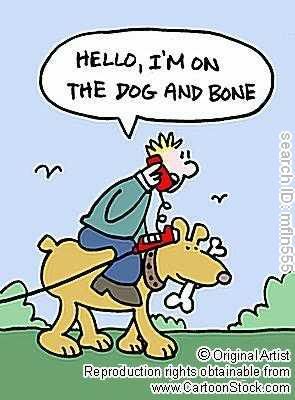Welcome to The Mad Logophile. Here we explore words; their origins, evolution, usage. Words are alive. They are born, they change and, sometimes, they die. They are our principal tool for communicating with one another. There are millions of words yet only an estimated 171,476 words are in common current use. As a logophile, I enjoy discovering new words, using them and learning about their origins. Please join us!
-------- Originally posted April 5, 2009 ----------------
According to the Oxford English Dictionary, the term Cockney derives from "cock and egg" after a misshapen egg that nobody would want to eat. Technically, a Cockney is anyone who was "born within the sound of the bells of Bow." Kossack rpjs elucidates: St Mary-le-Bow is on Cheapside, but that is a street in the heart of the City of London, the "square mile" that was the original medieval city and is today forms the financial district of London. Virtually no-one lives in the City anymore, and as the City became less and less residential, the first major shift of population was into the East End, the area immediately East of the City. One of the localities in the East End is Bromley-by-Bow (or Bow for short) which has its own Bow Church (St Mary and Holy Trinity Bow), and as the people moved east, so did the Bow Church that you had to be born nearby to be a "true" Cockney. If you are a genuine Eastender, then you may consider the mangling of the English language a birthright.
Cockney rhyming slang traces back to the fifteenth century. But it came into its own in the 1800s when street traders and criminals both used it as a means of covert communication. According to Kossack flagpoleit was used in Stalags during WWII as a way of communicating under the guards noses. Nowadays, it has a life of its own.
Much of Cockney rhyming slang relies on word pairs; like "Adam and Eve" or "Apples and Pears." Sometimes the pair is stripped down to only one of the words (usually the first). Cockney expressions can vary in their construction, and it is simply a matter of convention which version is used.
Some slang expressions have escaped from London and are in popular use throughout the rest of Britain. For example "use your loaf" is an everyday phrase for the British, but not too many people realize it is Cockney Rhyming Slang (loaf of bread=head).
Modern Cockney slang that is being developed today tends to only rhyme words with the names of celebrities or famous people. If your name has become a rhyming slang phrase for something mundane, you have truly arrived. There are very few new Cockney slang expressions that do not follow this trend. The only one that has gained much ground recently that bucks this trend is "Wind and Kite" meaning "Web site."
Since I am not Eliza Doolittle (as much as I wanted to play the part in my younger days) and can't work all of these into paragraphs or even full sentences, I am forced to present the information in list form. Please be advised that some of these are not entirely PC.
